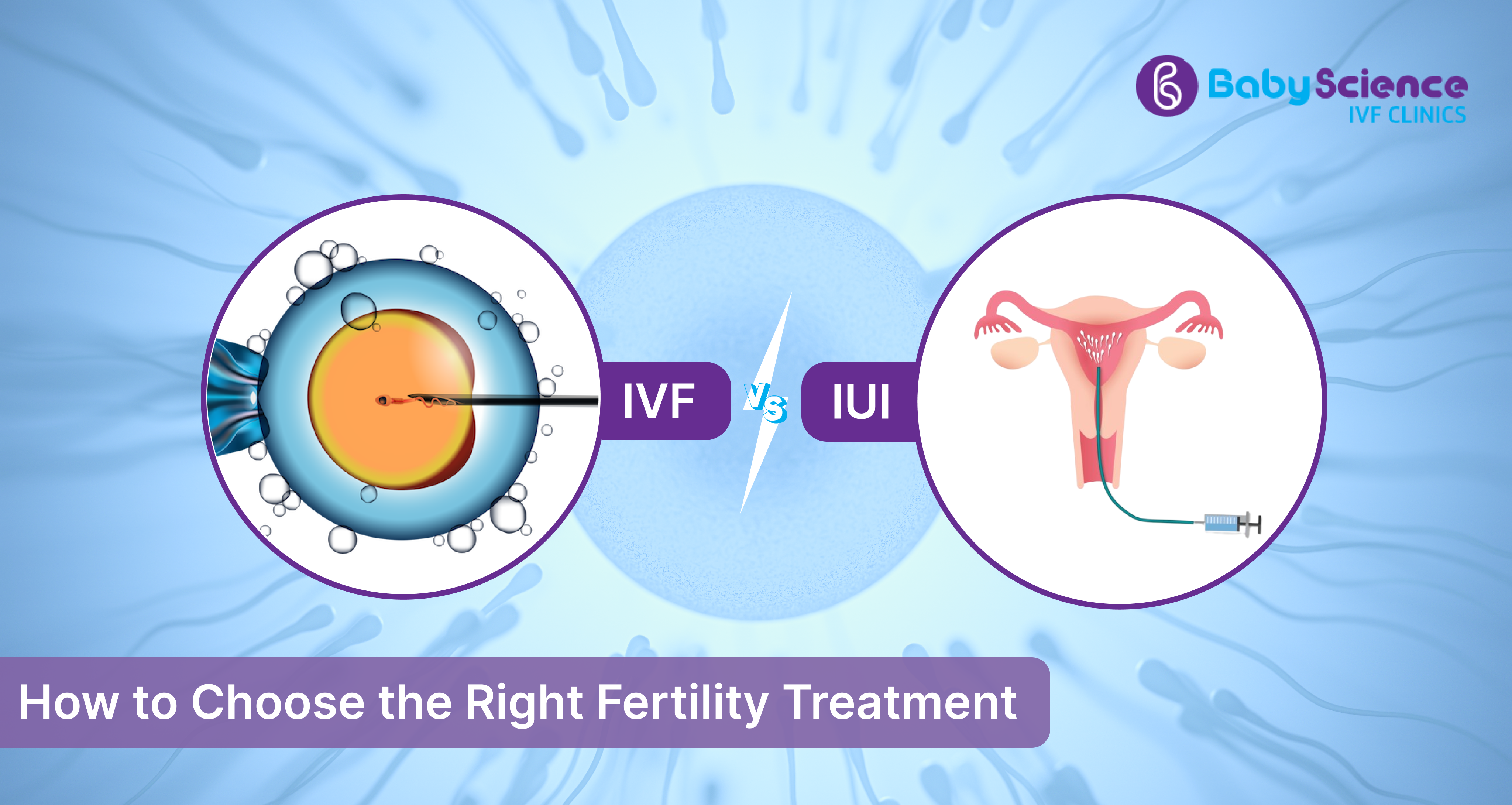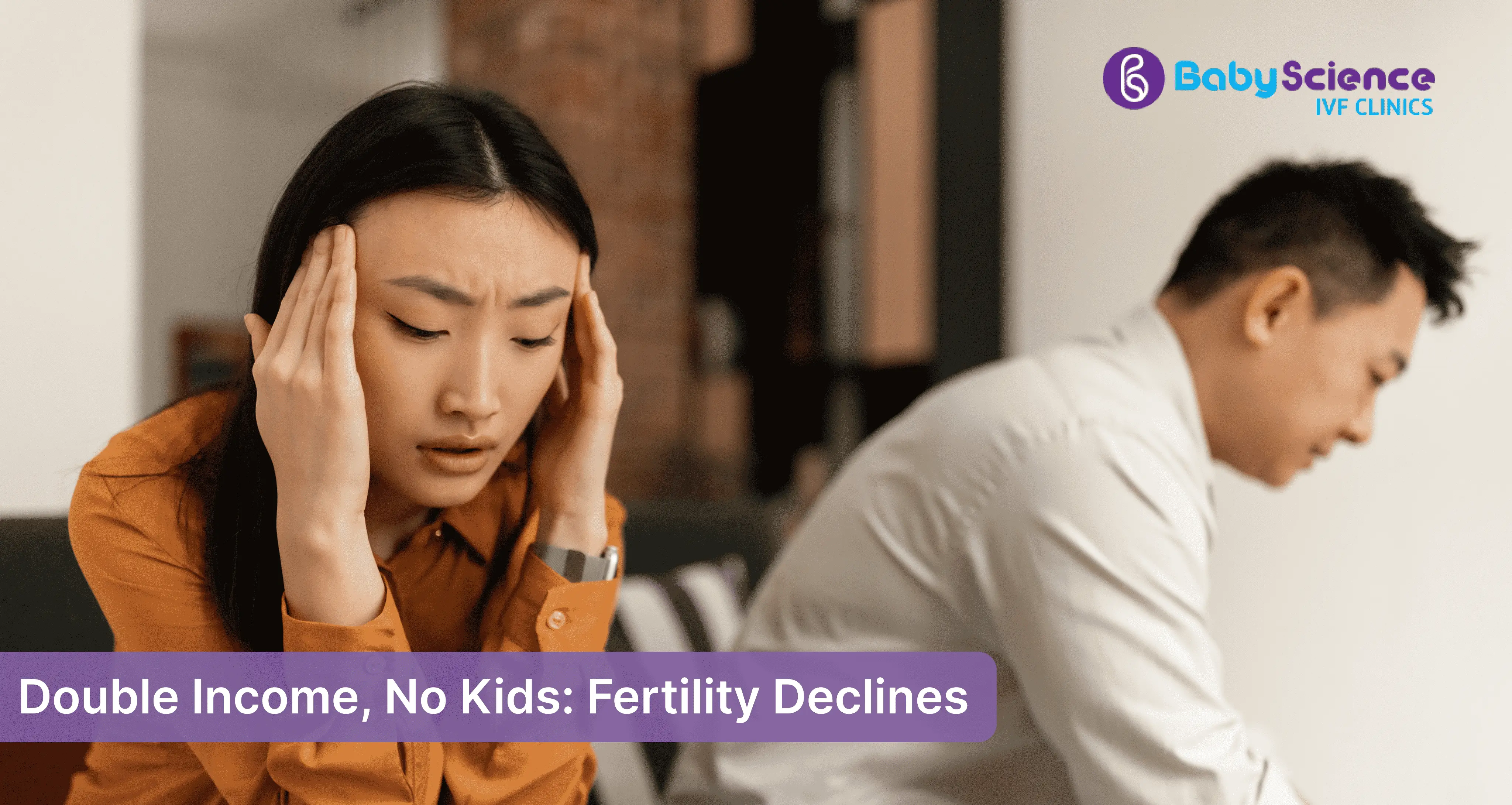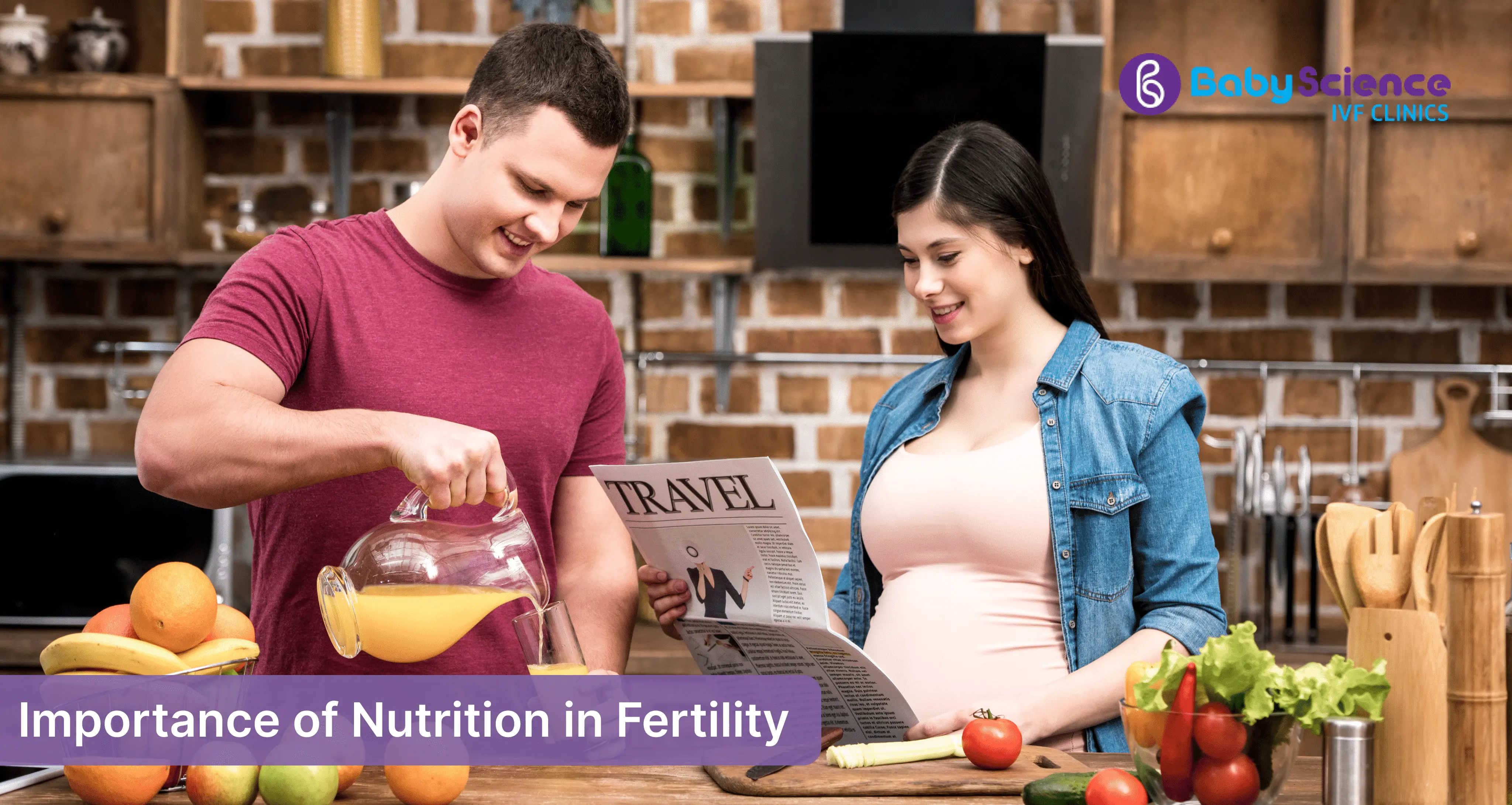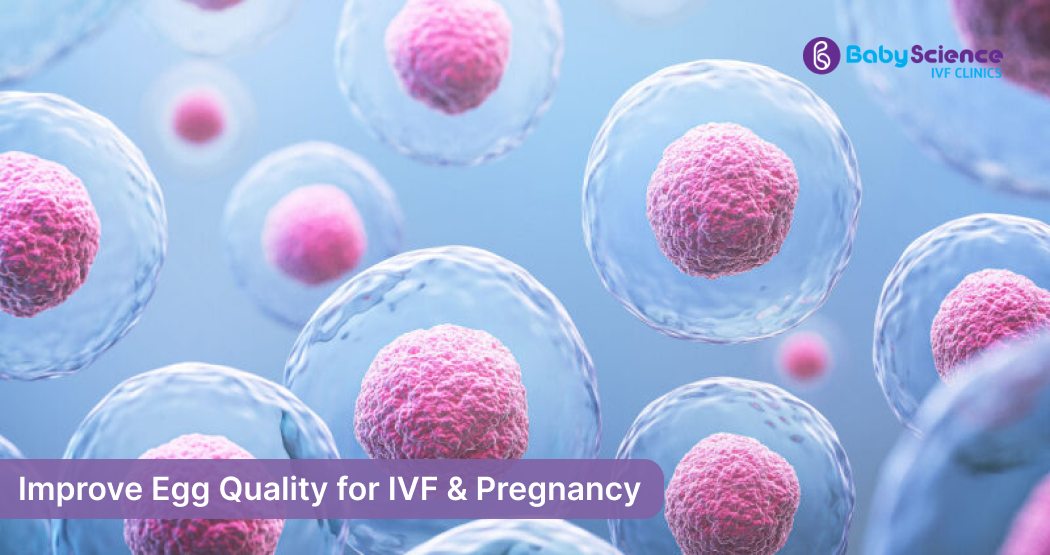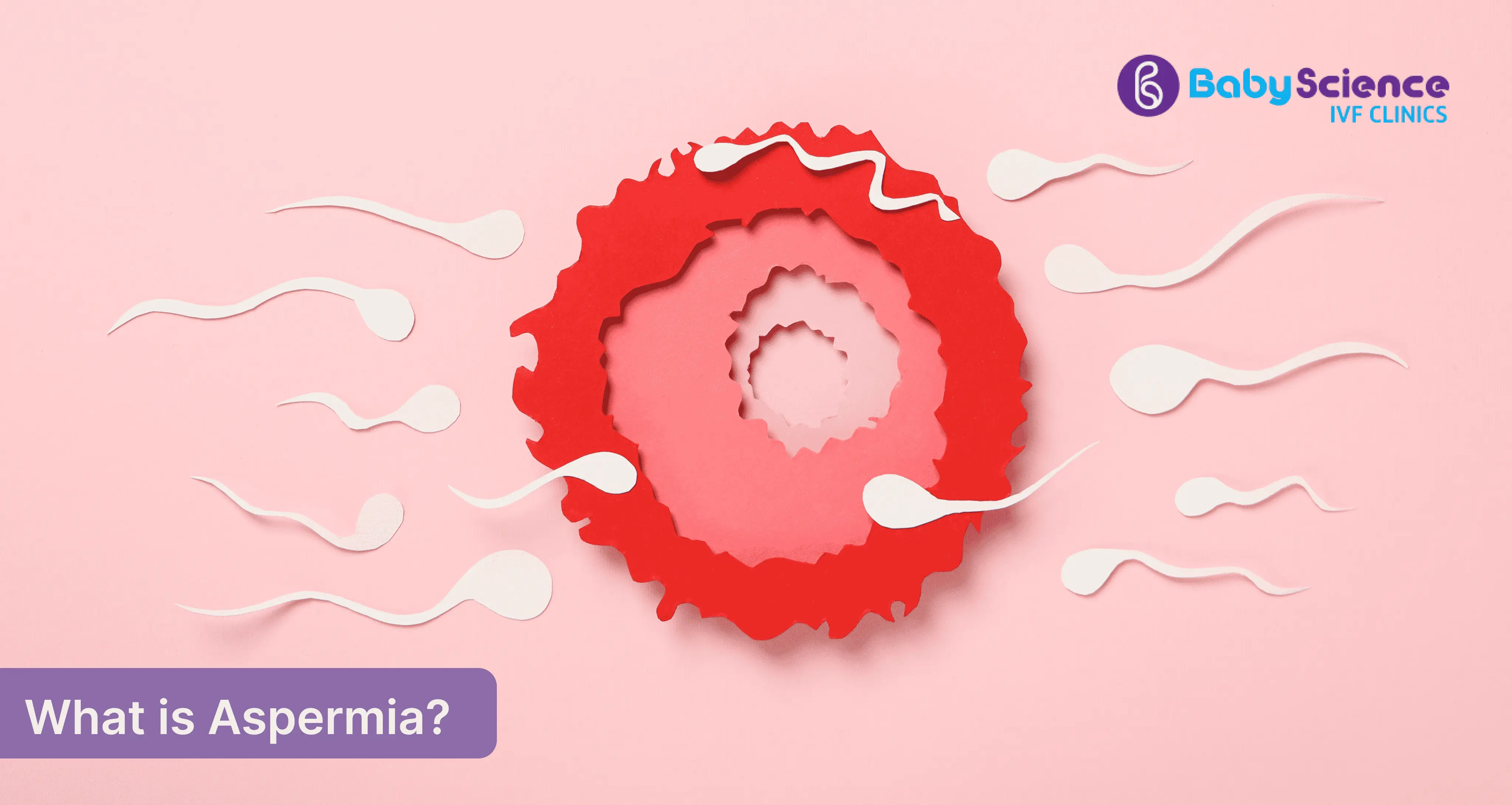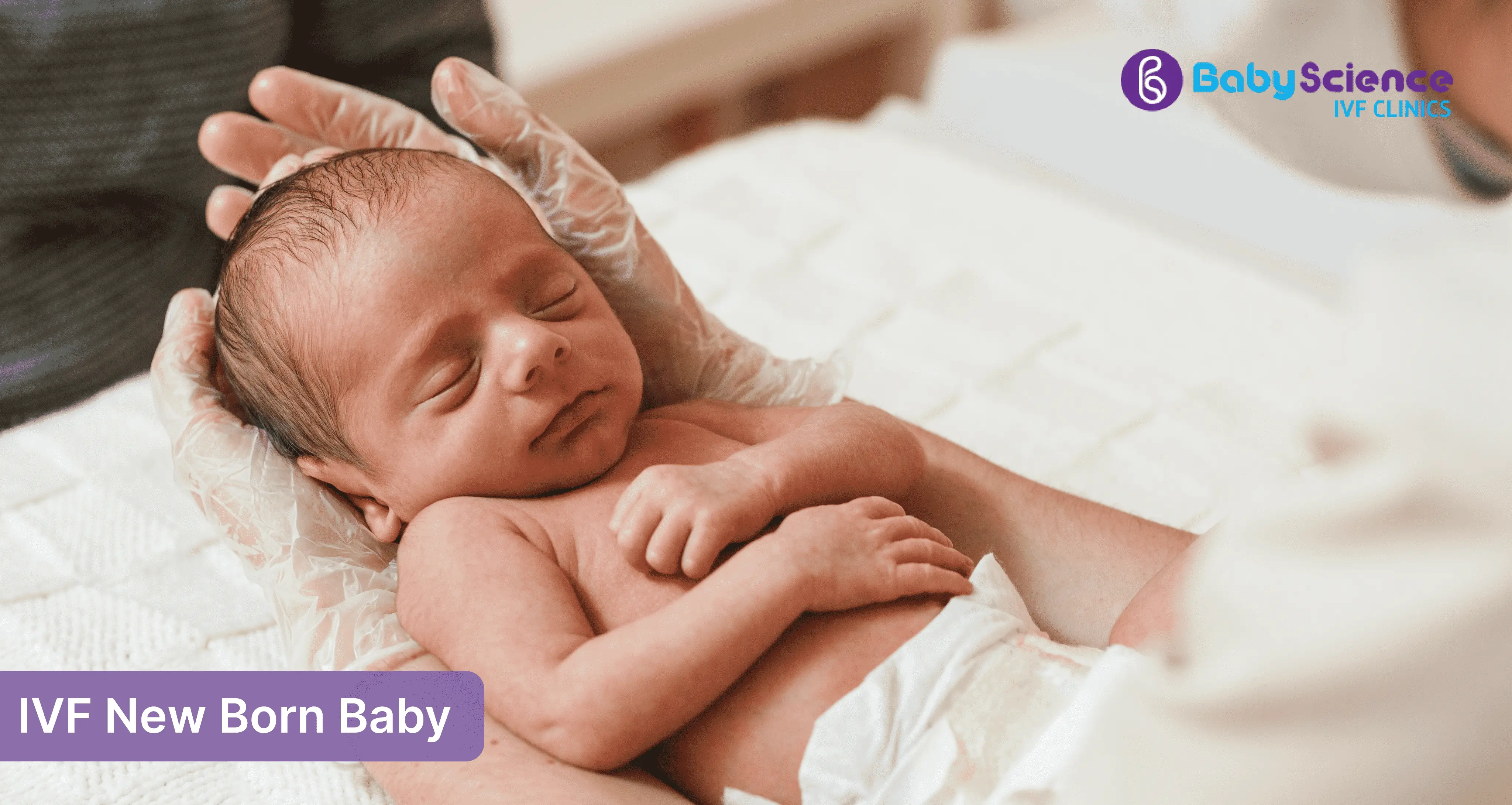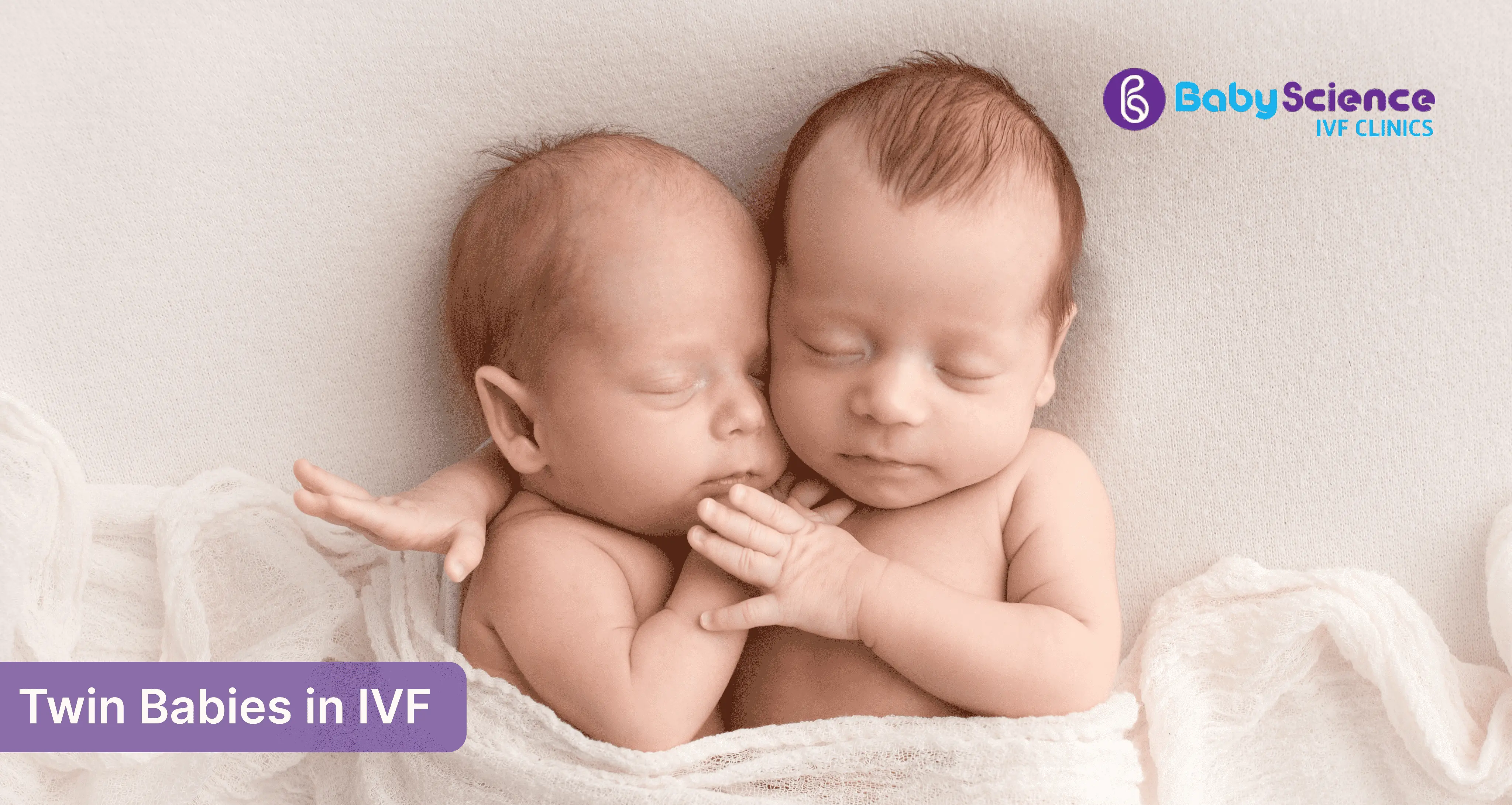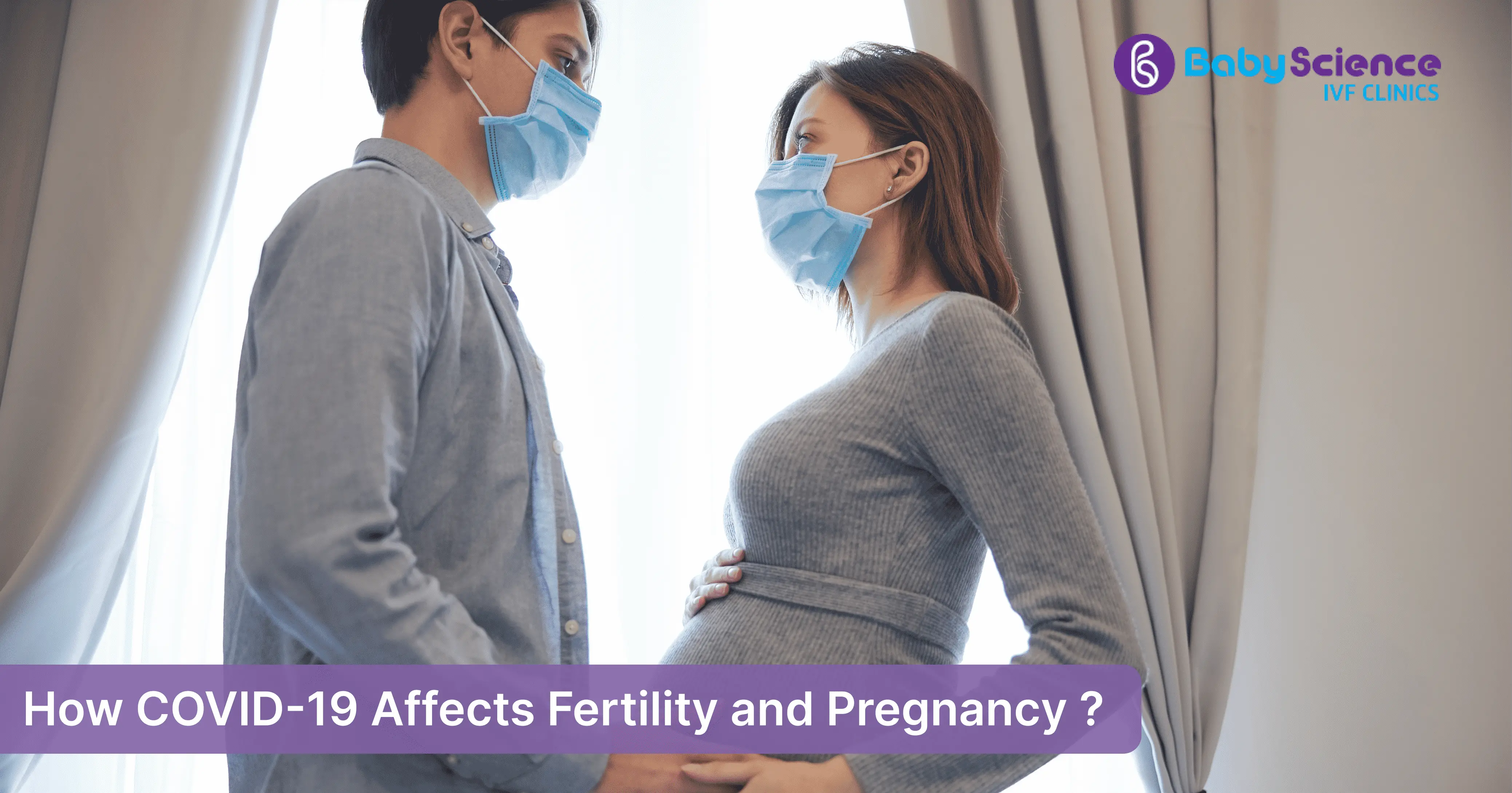
The COVID-19 pandemic changed everything, how we think about healthcare and family planning. If you were trying to conceive or already pregnant during this period, you probably had concerns about how the virus could affect your fertility and pregnancy. Even though things are improving, COVID-19 is still something to consider. That's why it's important to know how it affects fertility and pregnancy. In this blog, we'll explore this topic with insights from fertility experts like Baby Science IVF. We'll provide reliable information, address common concerns, and offer guidance for those thinking about fertility treatments during the ongoing pandemic.
The Effects of Coronavirus on Male and Female Fertility
Currently, there's limited evidence to suggest that COVID-19 directly affects fertility in either men or women. However, it's crucial to recognize that the virus can induce high fever and severe illness, which might temporarily impact sperm production or disrupt menstrual cycles. If you're considering natural conception or assisted reproductive technologies like IUI (intrauterine insemination) or IVF (in vitro fertilization), it's advisable to seek advice from a fertility specialist for personalized guidance.
The Risks of Coronavirus During Pregnancy
Pregnant individuals aren't more likely to get COVID-19 than the general population, but if they do, they might face a higher risk of severe illness. To protect themselves and their baby, it's vital for pregnant individuals to adhere strictly to preventive measures like wearing masks, maintaining good hand hygiene, practicing social distancing, and keeping up with regular prenatal care.
Fertility Treatments & COVID-19
Throughout the pandemic, fertility clinics have ramped up safety measures like virtual consultations, health screenings, and increased sanitation to lower infection risks. If you suspect exposure to COVID-19, it's wise to connect with your fertility specialist virtually. They'll offer advice on your next moves, possibly suggesting a delay in treatment if your health conditions could affect fertility procedures.
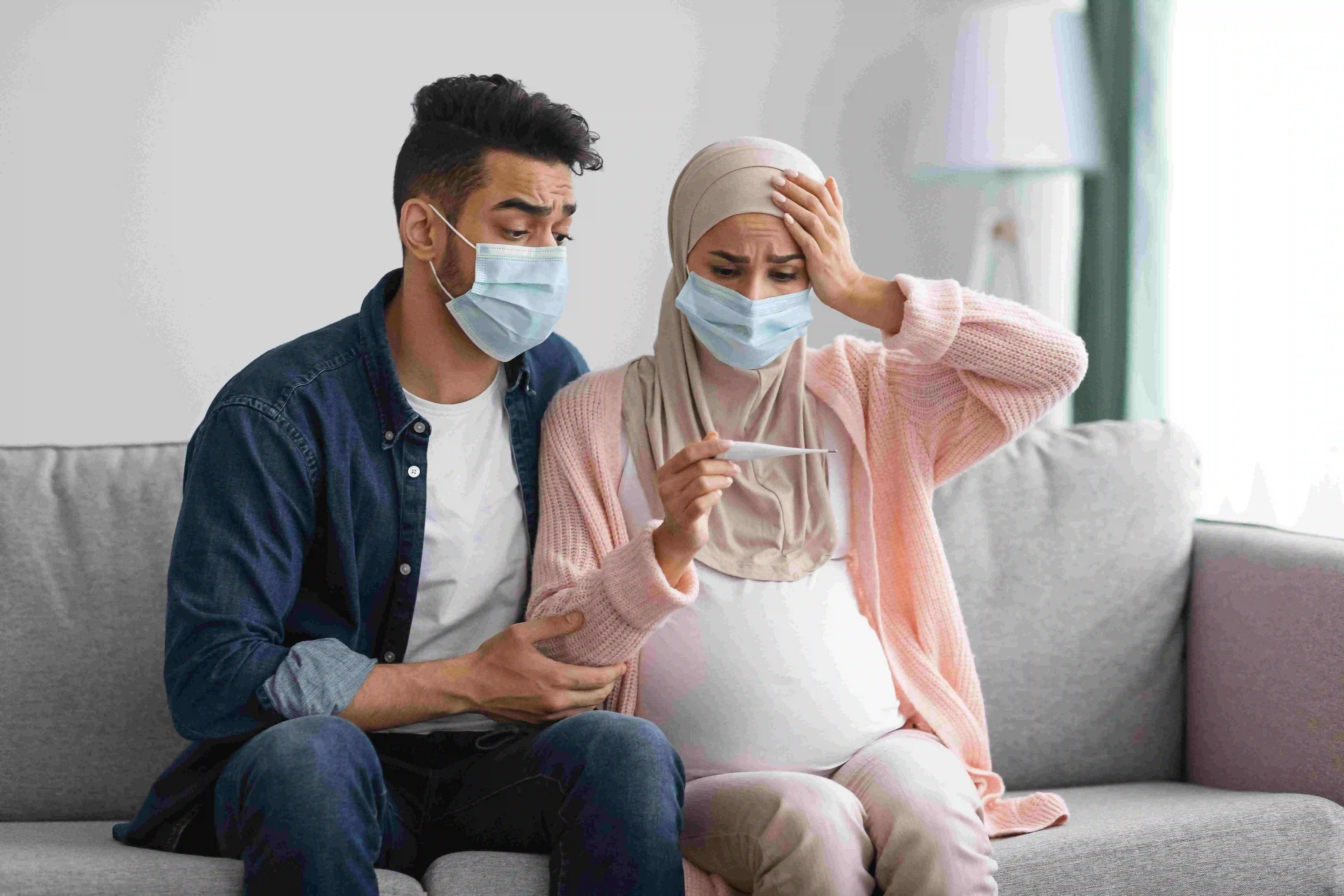
Precautions
When you're going through fertility treatments like IUI or IVF, it is important to follow the guidelines provided by your clinic. These may include:
 Keeping up good hand hygiene
and
wearing masks when you're at the clinic
Keeping up good hand hygiene
and
wearing masks when you're at the clinic  Following social distancing
rules while you're there
Following social distancing
rules while you're there
 Bringing only essential
support
people to your appointments
Bringing only essential
support
people to your appointments Opting for virtual
consultations
when feasible
Opting for virtual
consultations
when feasible  Following your fertility
specialist's instructions and medication schedules diligently
Following your fertility
specialist's instructions and medication schedules diligently
COVID-19 Positive During Fertility Treatment
Throughout the pandemic, fertility clinics have ramped up safety measures like virtual consultations, health screenings, and increased sanitation to lower infection risks. If you suspect exposure to COVID-19, it's wise to connect with your fertility specialist virtually. They'll offer advice on your next moves, possibly suggesting a delay in treatment if your health conditions could affect fertility procedures.
If you test positive for COVID-19 during fertility treatment, notify your specialist immediately. They'll advise on whether to continue or pause treatment based on your situation.
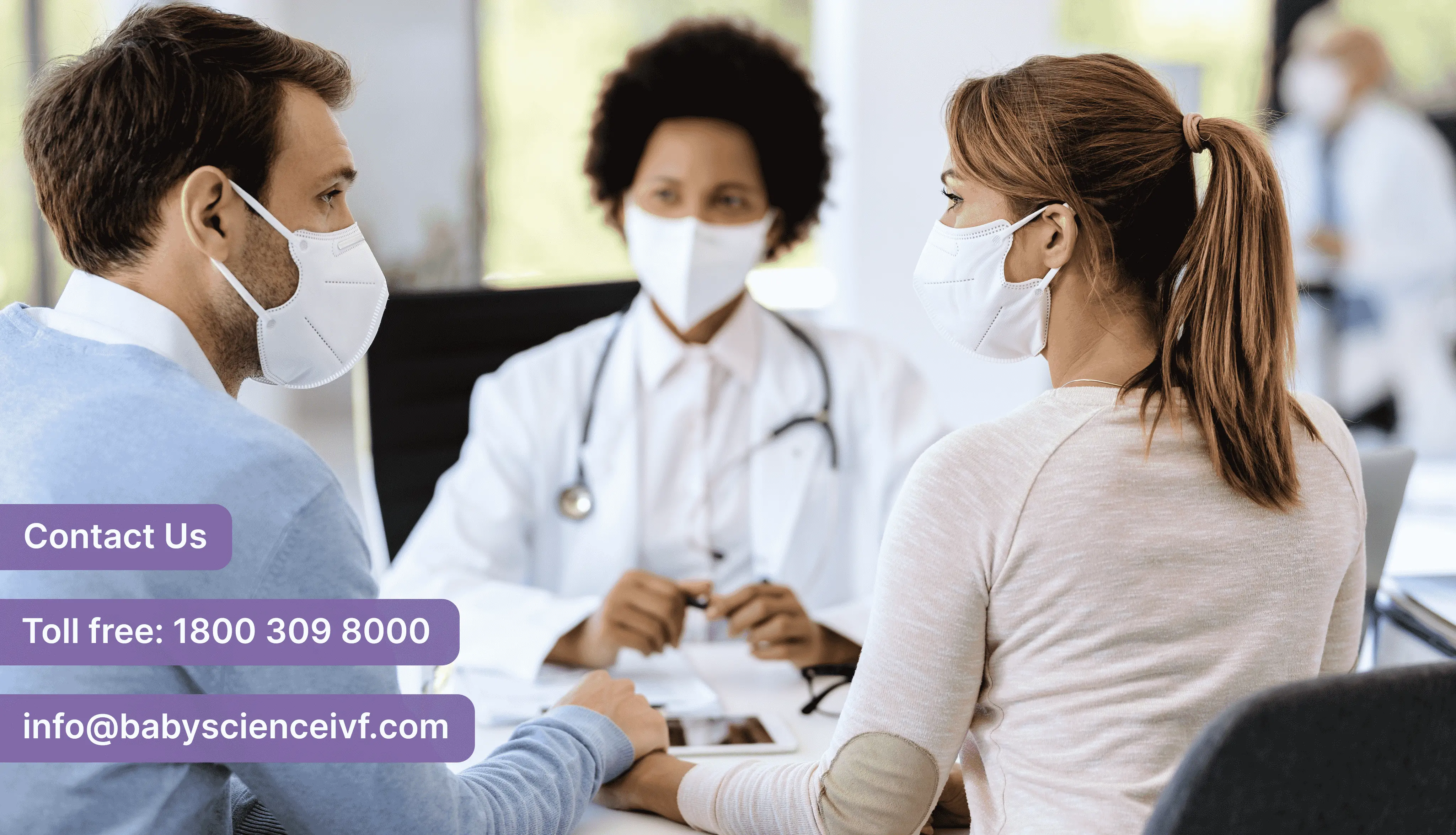
While the impact of Coronavirus on fertility is still under study, it poses unique challenges for those planning to conceive or pregnant. Stress and treatment disruptions underscore the need for support.
At Baby Science IVF Center, our team prioritizes safety during treatments. Book An Appointment for support on your fertility journey.
Frequently Asked Questions (FAQs)

Limited evidence suggests COVID-19 might not directly impact male fertility, but severe illness and high fevers could temporarily affect sperm production. Seek guidance from a fertility specialist for personalized advice.

Indian medical authorities like ICMR and Ministry of Health deem COVID-19 vaccines safe for those trying to conceive or pregnant. Vaccination shields both mother and baby from severe illness. Consult your fertility specialist before deciding.

Pregnant individuals should adhere to preventive measures: wear masks, practice hand hygiene, maintain distance, and seek regular prenatal care. Consult your specialist for personalized advice.


